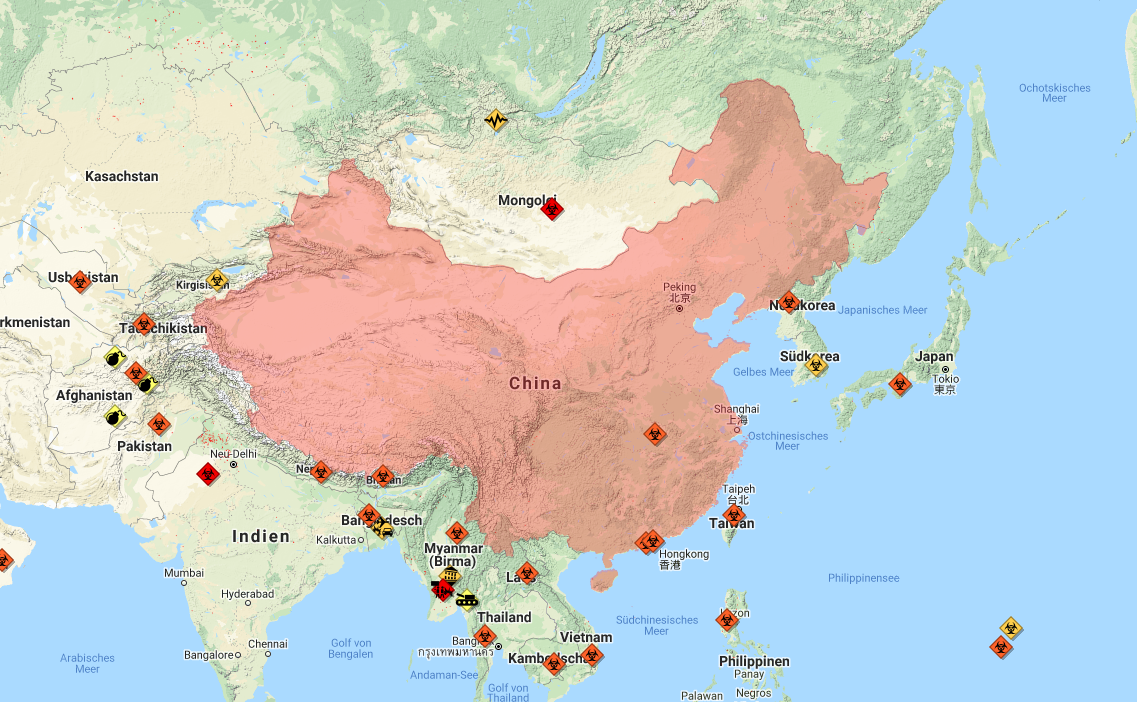Travel to China: No Return to Business as Usual?
For those still travelling in times of the pandemic, having a COVID-19 test swab inserted into the nose or mouth has become an all too familiar sensation. However, having the same procedure conducted rectally should be an altogether new experience for most travellers. After all, only the People’s Republic of China currently performs this rather peculiar screening method on arriving passengers. This controversial procedure is emblematic of China’s approach towards combatting the pandemic, which relies heavily on the ruthless application of extremely invasive measures. While these measures were undoubtedly effective in combating COVID-19, the requirement to quarantine for up to a month, family separations, and strict visa allocation procedures have led to a precipitous fall in international travel to China. Additionally, these restrictions have also severely hampered the operations of foreign companies and upended the lives of many ex-pats working in China. Yet, despite rising vaccination numbers, there likely will be no return to the pre-pandemic status quo for business travellers and ex-pats in China anytime soon.
Condemned to Succeed?
At first thought, this seems like a rather strange suggestion. Considering, that as of April, China has officially reported just over 100,000 COVID-19 cases and less than 5,000 virus-related fatalities – in total. In terms of vaccinations, the country may trail the global frontrunners, but it has still administered well over 200 million doses while exporting millions more abroad. Moreover, whereas most countries around the world are still caught in seemingly perennial lockdowns, China’s economy appears to be roaring back to life, growing by a staggering 18.3% in the first quarter of 2021. However, in a way China is also condemned to succeed, or more precisely the central government in Beijing is.
When COVID-19 first emerged in the Chinese city of Wuhan, many initially regarded it as a serious crisis of legitimacy for the Chinese Communist Party. For several crucial weeks, Chinese authorities had downplayed the danger of the novel disease, pressured medical experts to stay silent, and neglected to impose any kind of restrictions or safety measures. To redeem themselves for their initial bungling and to contain growing popular anger, Chinese authorities imposed draconian measures to get the disease under control at any cost. This approach succeeded beyond all expectations both in terms of containing the virus, but also in containing the public relations damage. Just as COVID-19 cases were surging worldwide, the Chinese leadership was able to “declare victory” over the virus. At the same time, this declaration of victory is not something Beijing can just walk back again.
Beijing Painted into a Corner
Beijing’s propaganda focuses heavily and further exaggerates the “chaotic” pandemic response in much of the Western world while extolling the “superiority” of the Chinese authoritarian system. Thereby, largely succeeding in converting popular anger into nationalist pride. This also means that a relapse in the fight against COVID-19 could potentially be devastating for the public standing of the Chinese leadership, and accordingly Beijing will do everything in its power to prevent this from happening. However, Chinese-made COVID-19 vaccines are significantly less efficient in preventing the virus when compared to mRNA vaccines like the BioNTech-Pfizer and Moderna shot, leaving China vulnerable to a resurgence of the disease and even more so to a mutated variant of the virus.
Theoretically, Beijing could just order mRNA vaccines to boost the efficacy of the vaccination efforts in China, but it would find itself at the back of the line for delivery. More importantly, Chinese state media and officials have been waging a month-long campaign to discredit these very vaccines. So, it would be highly embarrassing for the Chinese leadership to now have to rely on “Western-made” vaccines and undermine the narrative of the “superiority” of the Chinese system. To this day, no foreign vaccine has been approved in China, and if this pattern holds the country will have to wait for Chinese-made mRNA vaccines to significantly raise vaccination efficiency.
Possible Implications for International Travelers
Since vaccinations are widely seen as the key to a return to some kind of normalcy, this has implications that go beyond Chinese health security. Countries around the world are racing to develop and ensure mutual recognition of vaccine passports to facilitate international travel. While China is also developing a kind of vaccine passport system, it seems only travellers who have been vaccinated with a Chinese-made vaccine will receive preferential treatment. Recently, there has been some hope, that Chinese officials might reconsider their rigid approach towards foreign vaccines. Even so, this would still leave the problem of China’s vulnerability to another COVID-19 outbreak if it were to open up to the outside world. Accordingly, for the foreseeable future, there likely will be no return to business as usual when it comes to travelling to China.

